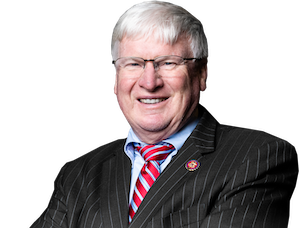Articles
The Federalist: Top Nine Myths About Trade Promotion Authority And The Trans-Pacific Partnership
Washington,
June 9, 2015
The Federalist: Top Nine Myths About Trade Promotion Authority And The Trans-Pacific Partnership
By: Scott Lincicome June 9, 2015 The current debate over Trade Promotion Authority proves, once again, that the classic description of the anti-globalization movement—as “largely the well-intentioned but ill-informed being led around by the ill-intentioned and well informed”—still holds true. Despite the tireless efforts of trade policy experts to explain why TPA and the U.S. trade agreements it’s intended to facilitate are, while imperfect, not a secret corporatist plot to usurp the U.S. Constitution and install global government, myths and half-truths continue to infect traditional and social media outlets. Because these myths—originating with the same old anti-trade bedfellows that have been with us for decades—have duped a lot of good folks who are otherwise predisposed to support liberty and free markets (including some in Congress), and because the House of Representatives is poised to vote on TPA in the coming days, here is one last debunking of the top nine myths about TPA, the Trans-Pacific Partnership (TPP), and U.S. free-trade agreements (FTAs) more broadly. Myth 1: TPA and U.S. FTAs are unconstitutional and undemocratic! Totally false. Cato’s Bill Watson and I explained this at length in The Federalist last year, but here’s former Attorney General Ed Meese to reinforce our conclusions: The TPA legislation… is clearly constitutional because Congress retains its authority to approve or reject all future trade agreements. It might be unconstitutional if Congress tried to delegate its authority to approve the final deal–but that is not at issue. Congress may always kill any future international agreement by withholding its final approval. The only difference under TPA is that Congress consents not to kill the agreement by amendment (i.e., the ‘death by a thousand cuts’). The Constitution grants each house of Congress the authority to establish its own rules of procedure, and it makes perfect sense for Congress to limit itself to straight up-or-down votes on certain resolutions, such as base closures and its own adjournment motions. Constitutional law professor John O. McGinnis also recently reviewed TPA and concluded that TPA “simply permits Congress under its ordinary procedures to commit to a future majority vote of Congress to vote up or down on an agreement that the President has negotiated. Representative democracy is thus served by the later vote on an agreement whose text is known.” And then there’s the U.S. Supreme Court in the 1890 case of Field v. Clark approving the constitutionality of an analogous law—the McKinley Tariff Act of 1890, which granted the president even more authority than TPA. It was no big deal. Finally, it’s important to reiterate that, contrary to some claims, FTAs are not treaties (which are typically “self-executing,” require two-thirds approval by the Senate, and have the force of law upon ratification). They are “congressional-executive agreements” that, even after being signed by the president, have absolutely no legal force until they are converted into implementing legislation (which would amend current law), passed by Congress, and signed into law by the president. Such agreements have for decades been used by the United States for many different issues, including trade liberalization, and U.S. courts have repeatedly rejected constitutional challenges thereto. In short, a constitutional argument against TPA requires you to reject over a century of precedent, the repeated rulings of U.S. courts, and the opinions of even the strictest of constitutional scholars. Read the full article here. |

